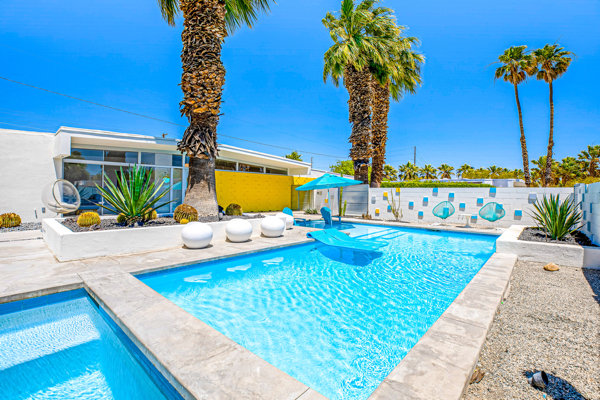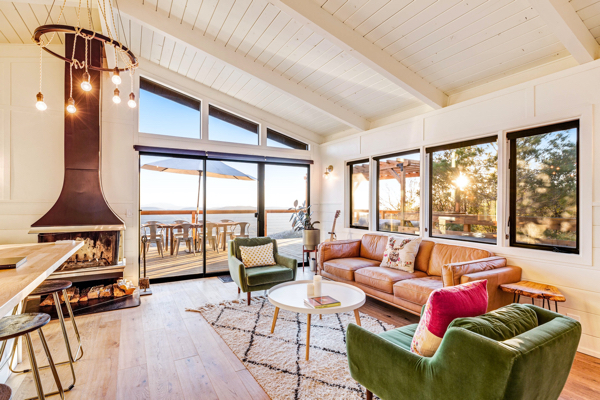Imagine running a management company where every aspect of operations is bespoke and custom. Then figure out how to scale it and create efficiencies to make the numbers pencil out to profitability.
That is what North American vacation rental management company Vacasa is doing and the only way to succeed, says outgoing CEO Matt Roberts, is by having the purpose-built technology platforms in place to support their customers – rental owners and guests. In late August, Vacasa announced that as a result of succession planning that commenced earlier in 2022, Rob Greyber will be its next CEO, effective September 6. Greyber, a protégé of Uber CEO Dara Khosrowshahi, recently served as the president of Expedia’s business travel group Egencia before it was sold to American Express Global Business Travel.

In fact, Roberts says Vacasa spent US$15 million last year on technology. “We’ve become really good at building technology and the operational processes to run a logistics-heavy, complex local business with local people,” he adds.
Along with local, 24/7 teams to service Vacasa’s 35,000-plus homes across more than 400 destinations in North America, Belize and Costa Rica, the key to Vacasa delivering 21% more revenue to owners who switch to Vacasa from another property management company, according to Roberts, is the revenue management system that adjusts rates in real-time. It also gives its more than 3 million guests per year an app to book and manage their stays, which more often than not are delivered through 100-plus channel partners, including Airbnb, Booking.com and Vrbo.
“We have the operational breadth, scale and technology tools that help our team do their job in a most efficient way,” Roberts explains. “We can do things like back-to-back rentals, and therefore we don’t leave nights stranded. Our rates are not any higher, but we know how to set the right rate that sells through the most nights because what we’re really solving for is revenue per available night.”
More recently, Vacasa said it will be adding a smart home management system, including proprietary keyless locks, Wi-Fi router with custom connectivity experience, and a patented noise monitoring system. These technologies will be provided at no additional cost to Vacasa homeowners.
“Vacasa is a technology play. You must understand that the only way this whole thing works is having the technology platform that supports it,” says Roberts, a former CEO at OpenTable. “You have to figure out how to create scalability and skill efficiency.”
With 8,000 employees in its system, about 80% are out in the field helping owners get their properties ready and avoid those stranded nights. Vacasa accomplishes this via a system to route its cleaning crews in the most efficient ways.
Vacasa is also a public play. It went public in a special purpose acquisition company merger in December through a business combination with TPG Pace Solutions. The transaction implied a pro forma equity value of approximately US$4.5 billion and capitalized the business with approximately US$485 million in gross cash proceeds. In its most recent second quarter, 2022 earnings call it reported beating its own guidance on revenue and earnings, while forecasting it would reach profitability, on an adjusted EBITDA basis, in 2023.
Vacasa is also projecting 30% unit growth this year, predominantly through direct sales efforts, as well as through the acquisition of smaller mom and pop managers looking to cash out.
Compared to the second quarter of 2021, Vacasa’s revenue in 2Q22 beat guidance, growing 31% to US$310 million.

With strong guest demand during the second quarter, gross booking value grew 32% year-over-year to US$676 million and net income in the quarter was US$10 million. Nights sold in 2Q were 1.6 million, a 17% increase YOY, and gross booking value per night sold was US$411, up 13% year-over-year.
For the full year, Vacasa most recently projected revenue between US$1.16 and US$1.18 billion and adjusted EBITDA to be between negative US$7 million and break even.
The tailwinds
Roberts believes Vacasa will continue to benefit from broader travel trends, including the “work from anywhere” movement and shifting preferences towards vacation rentals. “We have lots of tailwinds, which were accelerated by a new trial when everything was locked up except vacation rentals. The trend has been our friend for a while now, and it’s not letting up.”
Roberts adds that the Vacasa platform fills a void and solves a pain point that should lead to growth. “There are 5 million vacation homes in the U.S. alone, 20 million globally. With more than 35,000 units on our platform, we’re still small in the big picture of the market,” he says, adding that about 20% of its sales each month come from new renters.
Among their targets are existing property managers that have at least a certain base level of properties. “Those companies cover about 350,000 properties,” Roberts says. “So, we work that list and build relationships with the owners of those companies. And when they’re ready to sell, we’re there.”
